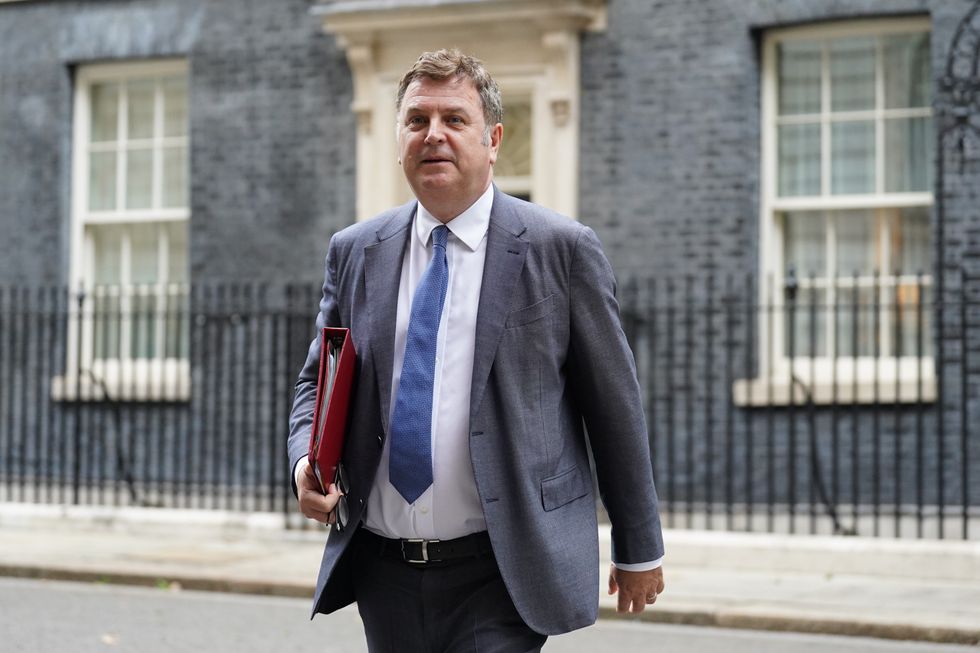The state pension increased by 10.1 per cent in April 2023 and an inflation-beating rise is expected in 2024
GETTY
Pensioners look set to get an 8.5 per cent increase to their state pension in April 2024, following a bumper 10.1 per cent rise earlier this year
Don't Miss
Most Read
The state pension is on track to rise by nearly £1,000 a year from April 2024, provided the government doesn’t tweak the triple lock mechanism.
The annual increase is this year expected to be 8.5 per cent, in line with earnings.
This is because it was the greatest figure compared to the other two factors in the triple lock - 2.5 per cent or the Consumer Prices Index (CPI) inflation for the year to September, which was confirmed at 6.7 per cent.
For those on the full new state pension, this means a rise of almost £1,000 over the year, although those who don't have the full qualifying years on their National Insurance record will get less.
WATCH NOW: GB News panellists on the future of the state pension triple lock
When GB News asked if the state pension will rise by 8.5 per cent as per the triple lock this year, a Department for Work and Pensions (DWP) spokesperson said: “The Government is committed to the triple lock.
“As is the usual process, the Secretary of State will conduct his statutory annual review of benefits and State Pensions using the most recent data available.”
How much will the state pension be from April 2024?
The full new state pension will rise from £203.85 per week to £221.20 per week.
It means the full new state pension will reach £11,502.40 per year. Currently £40,600.20 per year, it would mean an increase of £902.20.
The full basic state pension is currently £156.20 per week and is set to rise to £169.60.
For those who get the full amount, this works out at £8,814 per year. In 2023/24, it is £8,122.40, meaning these pensioners would get a £691.60 annual boost.
With the triple lock expected to cost the government about £9billion next year, there have been calls to scrap the mechanism.
Ministers are also reportedly considering tweaking the triple lock for 2024/25 in a bid to save money.
It’s been suggested the Treasury may decide to use a lower earnings figure of 7.8 per cent, which does not include bonuses, after some argued the higher earnings figure is skewed by the one-off bonuses paid to NHS staff and civil servants.
Caroline Abrahams, Charity Director at Age UK said: “At Age UK we think that as the Government promised pensioners that it will abide by the triple lock next year it should keep its word, and not try and wriggle out of its commitments.
LATEST DEVELOPMENTS:

The DWP said the Secretary of State would 'conduct his statutory annual review of benefits and state pensions using the most recent data available'
PA
“Ministers also need to appreciate that after a really challenging few years, quite understandably many older people place huge store on the triple lock promise that was clearly made to them being fully upheld."
Meanwhile, Becky O’Connor, Director of Public Affairs at the online pension provider PensionBee, said it was “unlikely” the Government would risk losing votes from pensioners by ditching the triple lock commitment in the near future.
She said: “While the sustainability of the triple lock as a mechanism for state pension rises remains in doubt, there is little doubt that decent rises help to keep pensioners out of poverty. It’s unlikely the Government would risk losing votes over such a vital part of the state welfare system before a General Election.
“If inflation continues to fall substantially over the next year and the heat also comes out of wage growth, the impetus to reform the triple lock may also subside.”













